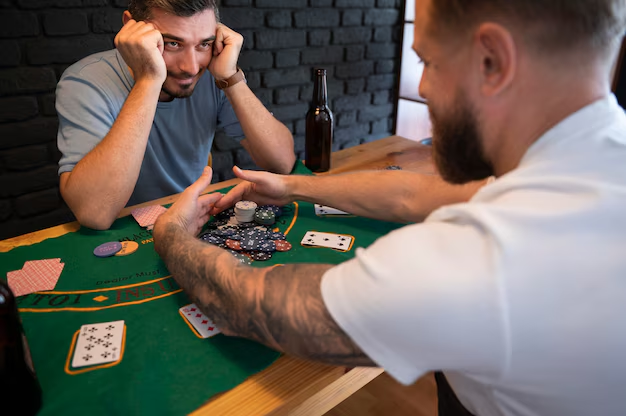Analyzing Average Loss Per Spin in Casino Games
Maximizing your gaming experience means understanding the average loss per spin in various casino games. By focusing on this metric, you can make informed decisions that enhance your play. Analyze the house edge and game volatility to find a balance between risk and reward; slot machines often exhibit a higher average loss per spin compared to table games like blackjack or baccarat.
For instance, while many slot machines have an RTP (return-to-player) percentage around 90-95%, the average loss per spin can swing significantly based on the stakes you choose. Calculate your average bet size and multiply it by the expected loss percentage to gauge the risk involved. This approach not only guides your bankroll management but also helps set realistic expectations.
Conversely, table games typically present a more stable loss per spin. In blackjack, for example, a skilled player can minimize their losses closer to 0.5% of their total bets. Such insights encourage a strategic mindset, prompting you to select games that offer the best long-term outcomes for your playing style. Keep track of your sessions to fine-tune your strategy, ensuring each spin brings you closer to your gaming goals.
Understanding House Edge in Casino Games
House edge represents the advantage that a casino has over players in any game. It guarantees profitability for casinos over time, reflecting the percentage of each bet that the casino retains. For example, in American Roulette, the house edge is around 5.26%, meaning the casino keeps about .26 for every wagered. Knowledge of house edge allows players to make informed decisions.
Recognizing the specific house edges in different games can lead to smarter betting strategies. Slot machines generally have a higher house edge, often ranging from 2% to 15%, depending on the game and casino. In contrast, blackjack can have a lower house edge, as low as 0.5% if played optimally with basic strategy. Understanding these differences aids players in choosing games that may offer better odds.
Adjusting your gameplay based on house edge can influence your average loss per spin or hand. For example, focusing on games with lower house edges can prolong gameplay and increase the chances of winning. Players should analyze payout structures and rules, as some games may appear attractive but harbor hidden disadvantages.
Consider bankroll management techniques to mitigate losses in games with higher house edges. Setting limits on spending and using a portion of the bankroll for each session can help maintain control. Establishing a win goal also encourages players to walk away early, preventing overexertion on less favorable bets.
In summary, understanding house edge is crucial when engaging with casino games. It guides players toward more favorable betting options and empowers smarter financial decisions. Grasping the significance of house edge not only enhances enjoyment but also promotes a responsible and engaging gaming experience.
Calculating Average Loss Per Spin for Slot Machines
To determine the average loss per spin on slot machines, begin by knowing the game’s return to player (RTP) percentage. Slot machines typically offer RTPs ranging from 85% to 98%. The higher the RTP, the lower the average loss per spin.
Use the following formula to calculate the average loss:
Average Loss Per Spin = Bet Amount × (1 - RTP)
For example, if you bet on a machine with an RTP of 95%, your average loss per spin would be:
× (1 - 0.95) = %%CONTENT%%.05
This means that, on average, you would lose 5 cents for each spin. Adjust the bet amount as needed to see variations in potential losses.
Also, consider the frequency of spins. If you typically play 100 spins in a session, calculate the total expected loss by multiplying the average loss per spin by the number of spins:
Total Expected Loss = Average Loss Per Spin × Number of Spins
Continuing with the previous example:
Total Expected Loss = %%CONTENT%%.05 × 100 =
Thus, over 100 spins, you can anticipate an average loss of about . This straightforward method helps set your budget and aligns your expectations during play.
Impact of Bet Size on Average Loss in Table Games
Increasing your bet size directly raises your average loss in table games. For instance, a player betting per spin on roulette will face a higher potential loss than one betting . Table games often have a house edge ranging from 1% to 15%, meaning larger bets lead to amplified losses over time.
When betting , a player might lose an average of %%CONTENT%%.50 with each spin on a game with a 5% house edge, leading to a potential average loss of during a typical 300-spin session. Conversely, at a bet, the average loss per session drops to . This illustrates how keeping your bets smaller can significantly reduce your overall risk.
Consider your gaming strategy carefully. Players aiming for longer play and lower risk should stick to smaller bets. This method maximizes playtime and minimizes losses. A consistent betting strategy that accounts for variance can also prevent quick losses due to larger bet sizes.
Adjust betting sizes based on your comfort and bankroll. If you are willing to accept more risk for larger potential payouts, increase your bets cautiously. However, always calculate your potential losses based on the game's house edge, ensuring you understand how each bet impacts your average loss over time.
Tracking past performance can provide insights. Analyze how different bet sizes affected your results across sessions. Use this data to inform your future strategies, potentially opting for lower bets to stretch your budget and enhance your experience.
Ultimately, thoughtfully managing your bet size remains critical in table games. Whether your goal is to enjoy the experience or to maximize potential winnings, aligning your betting strategy with your financial limits ensures a more rewarding session.
Comparative Analysis of Loss Rates in Different Game Types
The loss rate for players varies significantly across different casino games. Analyzing these differences provides insights for making informed choices. Below is a comparison of average loss rates for popular game types.
| Game Type | Average Loss Rate (%) | Characteristics |
|---|---|---|
| Slots | 5-15 | High variance, fast-paced, and player-friendly bonus features. |
| Roulette | 2.7-5.3 | Probability-based, combines strategy and luck, European vs American variants. |
| Blackjack | 0.5-1 | Skill-dependent, strategic play can lower house edge substantially. |
| Poker | Variable | Player-versus-player, skills and strategies heavily influence results. |
| Baccarat | 1.06-1.24 | Simple, player and banker bets with low house edge. |
Slots tend to offer the highest loss rates due to their design, which prioritizes speed and excitement. On the other hand, table games like blackjack and baccarat often have lower loss rates thanks to strategies players can employ. If minimizing losses is a priority, focusing on skill-based games like blackjack and poker can yield better results.
Each game type’s house edge directly influences the player’s experience. Selecting a game with a favorable odds structure increases the potential for maintaining your bankroll longer. Make your decisions based on the game mechanics and your comfort level with risk.
Utilizing RTP Data to Estimate Average Loss Over Time
Analyze the Return to Player (RTP) percentage of the casino games you play. This figure indicates the expected payout over time. For instance, a game with an RTP of 95% suggests that, on average, players will lose 5% of their total stakes. Understanding this allows you to estimate your average loss more accurately.
To calculate your potential loss, track your total wagers over a defined period. Multiply your total bets by the house edge, which is derived from the RTP percentage. If you wager ,000 on a game with a 95% RTP, anticipate a loss of about . This straightforward calculation helps you set realistic expectations for your gaming sessions.
Over time, compile data from multiple sessions to identify trends in your losses. If the average loss aligns closely with the RTP predictions, it affirms the reliability of the RTP data. Consider adjusting your gaming strategies based on these insights, such as choosing games with higher RTPs to minimize potential losses.
Additionally, remember that variance plays a role in the short term. While RTP provides long-term averages, individual results may fluctuate. Factor in your personal experience and adjust your play to maintain enjoyment without exceeding your financial expectations.
Regularly review your gaming sessions and their outcomes. This practice not only solidifies your understanding of RTP but also enhances your decision-making process for future gameplay. Prioritize games that consistently demonstrate better RTPs for improved financial management over time.
Strategies to Minimize Average Loss in Casino Gambling
Set a strict budget before playing. Determine how much you can afford to lose and stick to this amount. This prevents emotional decisions during gameplay.
Choose games with better odds. Games like blackjack, baccarat, and certain types of poker offer a lower house edge compared to slot machines. Familiarize yourself with the specific rules and play strategies to maximize winning potential.
Practice proper bankroll management. Divide your gambling bankroll into smaller amounts for each session. This allows for longer playtime and reduces the risk of significant losses in a single visit.
Utilize bonuses and promotions. Many casinos offer sign-up bonuses and loyalty rewards. Take advantage of these offers to extend your play without increasing your initial investment.
Learn and implement strategies for specific games. For example, mastering basic strategy in blackjack can greatly reduce the house edge. Study the optimal moves for various game scenarios to improve success rates.
Limit the time spent at the casino. Set a timer or a predetermined playing session, and leave once your time is up. This prevents prolonged play that can lead to greater losses.
Stay sober while playing. Alcohol can impair judgment and lead to poor decision-making. Maintaining clarity helps in making rational choices during games.
Take breaks regularly. Stepping away from the table or machine can provide perspective and help manage emotions. This can prevent impulsive betting after a loss.
Finally, accept losses as a part of gambling. Understand that losing is inevitable and adopt a mindset that focuses on enjoyment rather than solely on winning. This approach fosters a more sustainable gaming experience.


